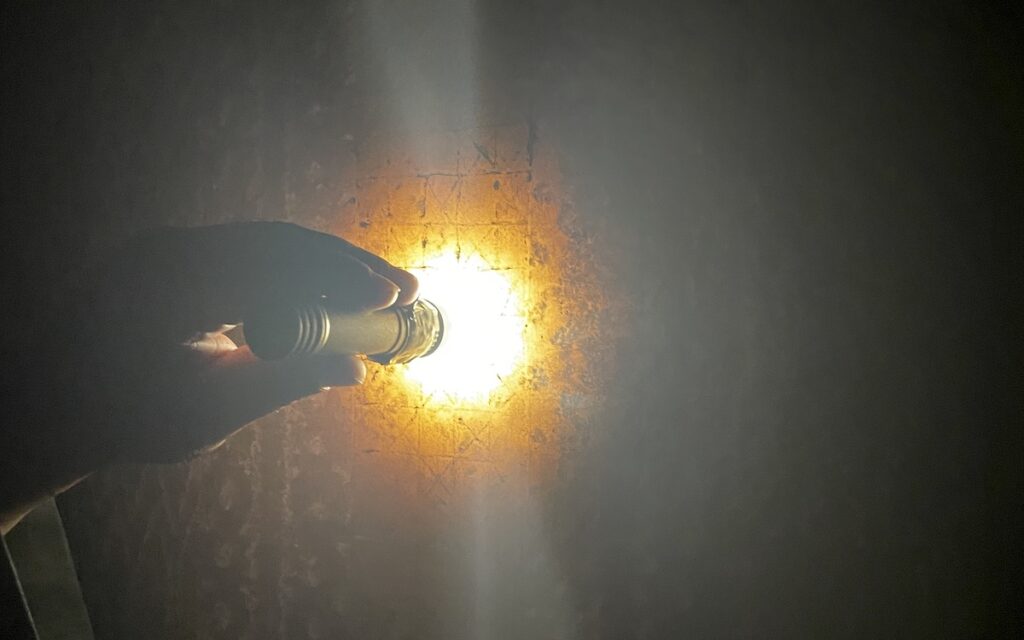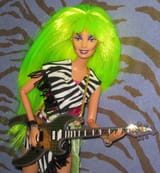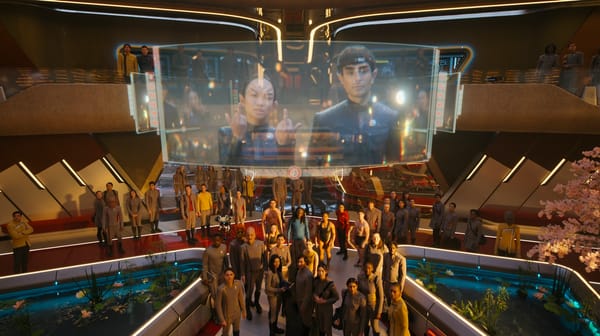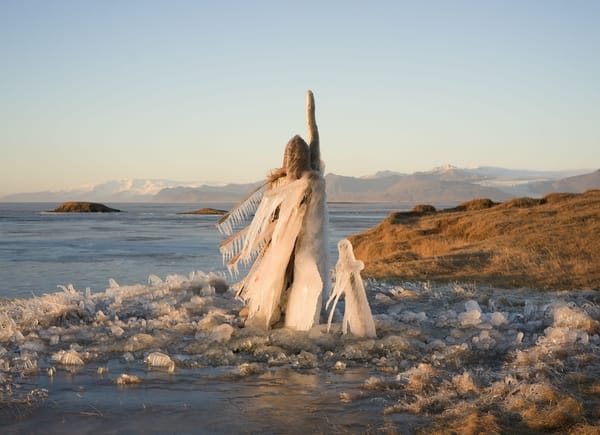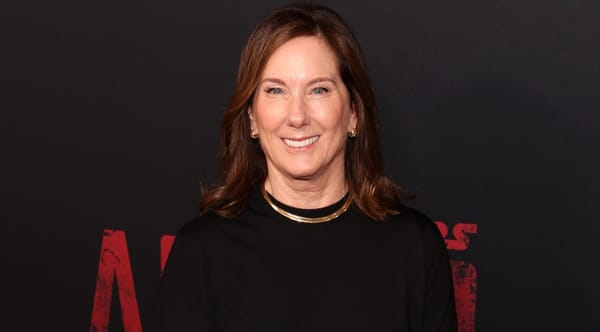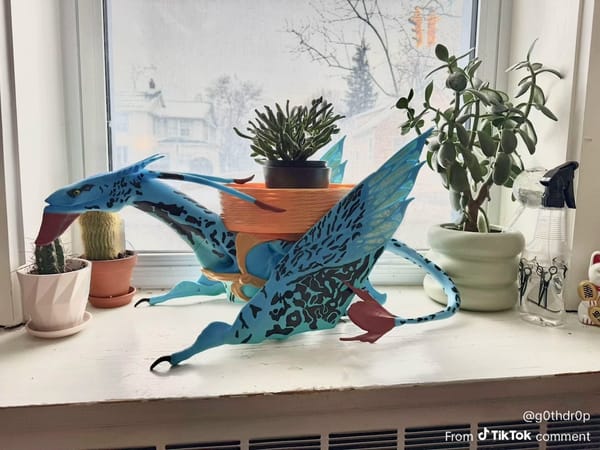The Desert
On escaping
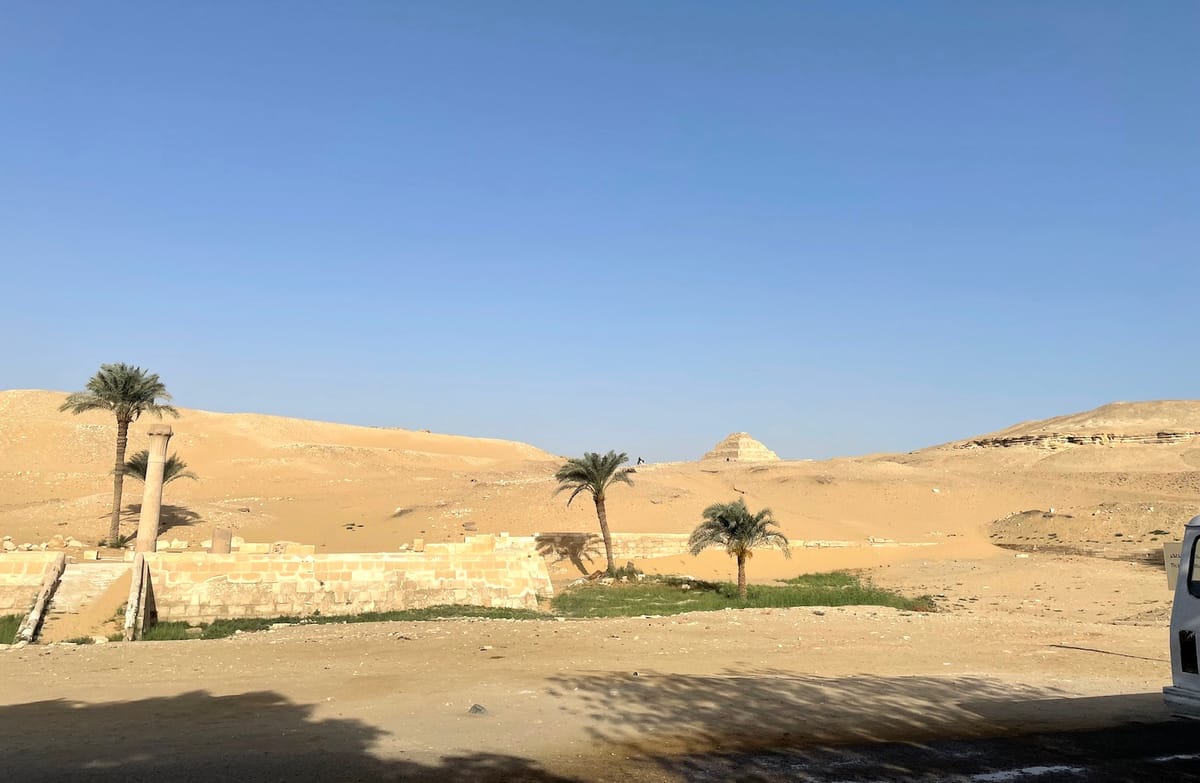
1. The Pole(s) of Inaccessibility
Last night I dreamed I was pregnant. Not just a little bit pregnant; all the way pregnant. Big, beautiful belly. It was a Sunday. It was my due date. I had started to have contractions. The baby, though, she was being coy. All hustle, no show. I ended up walking around the Beaches, trying to get things moving. I was sitting by the shore, commiserating with my cousin, who has two babies of her own. “Babies be like that,” we said, and we watched Lake Ontario.
I realized I hadn’t thought of a name for the baby yet; I thought of one in the moment, and then immediately forgot it. The sun was setting. I realized I was waking up. When I understood that I had been dreaming, it felt gentle, and desperately sad. I was still in the place that Tinkerbell talks about, and I said goodbye to her — the baby. And then I felt sad all day.
2. Apocashitstorm tour, day 12
The other day my friend Jon texted me, just to check in. That’s sociable! He asked me what I was up to, and since I was in the middle of that writers’ workshop I told you about, waiting to pitch, I told him about The Last Alchemist (YA novel set in a shattered city with all the people gone), and then I told him about Safecrackers (post-WWW3 Mummyesque adventure movie).
Without my having told him what either project was about, not even the parantheticals I’ve given you, he asked if either of them were connected in any way to my Mad Max book, because that’s the only thing I’ve ever done that he knows about. And I said no, not really; but also yes, clearly.
I’m also doing a 100% play-through of Horizon Zero Dawn on my PS5 right now. The game is sickly addictive: I’ve limited myself to only playing on weekends, because otherwise not only would I be playing it all the time, but I’d actually be insane right now. Even in weekend play, I kind of need to stop myself after a period of hours, because the dopamine hammer of it all is kind of starting to drive me loopy.
So when I want to take time off from that brain-frying consumption — i.e., on weekdays — I find myself bunging away on the Mad Max game from 2015. I go from one post-apocalypse to the other; this is how I’m spending my downtime. And yet it wasn’t till Jon asked the question that I realized literally everything I’m doing right now is about the end of the world.
Good game, btw. I suspect (or heard long ago, and half-forgot) that Mad Max is based on the outline of the script we now know as The Wasteland, which in the run-up to Mad Max: Fury Road, vied with (what is now) Furiosa: A Mad Max Saga as backstory elements for the project George Miller was about to shoot. The game’s about Max and Scrotus, although Scrotus is very different in the game than in Furiosa, where he basically looks like Butthead.
I’m guessing Miller gave the broad strokes of the Wasteland story to Avalanche Studios, never expecting to need to film it, and let them develop it as they saw fit. They did an incredible job of building out the Wasteland game environment (and a less-than-epic job of building out the gameplay, but I digress). Their Wasteland feels like a world, a world with rules and power dynamics and scary, hard-scrabble living; a coherent and comprehensive bolt-on to the one that Miller gestured at in Fury Road, and only fleshed out in depth in Furiosa. The world after.
Elsewhere, The Last of Us is back on the air, which is based on a game I haven’t played finished, I just remembered I played a few levels of the first one some years ago but couldn’t get the hang of it. Season two of Craig Mazin’s HBO series opens in a stable community in the post-apocalyptic world; this is not only my vibe, I’m beginning to suspect it’s my entire end-of-life ambition. I’m less interested in the end of the world, I’m realizing, than the weeds of humanity that break through the pavement afterwards.
I suppose that’s every person’s interest in the end-of-the-world story; I’m not unique there. The distillatory effects of crisis. I just think a lot about the myth of the human race, and how a final, irrefutable disruption of that myth will feel, and what we’ll be like afterwards.
When I’m not busy imagining my own community after the “end” of the human race — the premise itself is an inherent oxymoron — I think that my secondary creative preoccupation is always with time scale, with the buried DNA of it. We can visualize the sheer insignficance of everything we understand to be real if someone builds a buncha lampposts in Death Valley; or you can tighten the frame substantially and just wonder what we buried (“we” in this case goes to my own European lineage) when the pagan gods were pushed beneath the dirt. In a long enough time scale we’re what happened to the weeds that broke through.
Subscribers get to leave comments!
Sign up to pester me with your responses.
3. The Garden
A couple of weeks ago my friend Kat, who co-hosts a mean podcast, mentioned in her newsletter that her “completely unrealistic fantasy” for what she’d do with her life if she wanted to chuck everything, was to become a landscaper.
This was fun for me because in a slightly different way, that’s mine as well. I could probably think of a better completely unrealistic fantasy for what I’d do if I chucked my life (there remains, hazy and spectral, a memory of a small motel in Manapouri that I would, quite happily, buy and run for the rest of my life), but when I despair and think to myself, oh god, what job is the only job I’ve ever actually liked, it’s the summer in uni when I worked at a garden centre in the richest neighbourhood in Toronto.
I was occasionally sent on furloughs with the landscaping team to haul heavy rocks around or weed gardens and get Mrs. Robinson stares from the women who hired us and seemed to emerge from their houses with silver trays of lemonade, every quarter-hour on the quarter-hour. Lunches were brown-bagged and dirty and delicious, and I learned how to drive a cube truck. The actual landscaper was a nervous-looking son-of-a-bitch called Jinkinson, whose partner was expecting their first child, a baby who everyone therefore (unbeknownst to Jinkinson) preemptively called Jinkinson Junior.
The landscaping sub-gig was an evolution of my role. It happened later in the season, once I was trustworthy. Early on, like most university hirelings, I had no fucking idea what I was doing and (unbeknownst to me) everyone, including Jinkinson, knew it, so they did their best to limit my scope of potential disaster. Specific orders. Check back when you’re done. Don’t talk to the customers. That sort of thing.
Right in the middle, though — between the “this person is fucking useless” first act and the “going on landscaping runs” end of the summer — was a period where I was given the morning responsibility, before opening, to walk among the rows of seedlings, and water all of them. That was honestly the best thing I ever did for money in my life.
4. Swim in the myth
I read the David Brooks piece in the Atlantic the other week, the one with all the whining and angsting about America. I had some thoughts about it. Then some other things happened and I didn’t do anything with those thoughts.
But anyway, here’s this.
I do want to say, though — not having anything directly to do with the approach made by the creator above — there is a smug self-satisfaction about all this that is not actually helpful, not actually useful, not anything other than people who wish they were smarter, telling themselves that they are indeed as smart as they wish they were.
The brain-death of feeling a myth die, though, like a thousand micro-strokes that just keep pulsing, eating away the brain matter, necrotizing… that, I believe, is the tiniest fraction of what it must be like to enter hell.
Or how’s this: I’ve been reading The Penda’s Fen Sourcebook, and thinking about the entire veil of authority — everything we understand to be real — that has been landscaped over the wilder, richer soil beneath.
5. The Desert
But the thing is, when I read Kat’s piece, what I really started thinking about was how when I was a teenager, I started to have persistent fantasies of walking into the desert.
The teen years are salad days for annihilation fantasies, so nothing noteworthy there. Into my undergrad and throughout my first long-term relationship — I was a late bloomer — I would still nurse the idea that at some point in my adult life I was going to go to the edge of the Sahara (wherever that “edge” was), turn my body sandward, and just walk. And walk and walk, till I disappeared.
My doing so would mark the point of failure with all my grappling with the cognitive dissonance that bursts forth as a natural part of growing up; the reckoning with what being a person in the world is actually like, vs. what you were told it was like, all your life. It’s interesting that I never really thought there would be a point of success, in that process. I thought I would grapple with those disappointments and griefs and outright heartbreaks, and then one day, I wouldn’t be able to do it any more — and so, I would walk into the desert and it would be over. The heat cooking the last of me. The blinding sand, the only thing I’d see.
I don’t know when that fantasy stopped being a thing. Sometime in my twenties, I think; or by the end of that decade, anyway. New neural pathways; the integration of all the lessons into something like a way to go forward. Or maybe I just forgot about it, or got over myself, or both. I don’t notice when things like that end, just like I don’t notice when recurring dreams start. I never got pregnant in the dream; I just was pregnant in the dream. All at once, it’s always been like this.
Last summer I came out, and I was trying to get published, and I was trying to move a TV project forward that really meant a lot to me, and I thought I was gonna have a nervous breakdown. A pretty substantial identity crisis, anyway. It was all a lot of hey, here’s me, at my most vulnerable, out there in the world all at once — and it needed to be shaped and tended and watered, all the time, every day, in every converation, in every thought about myself. I was really glum about it: “oh shit, I did things too quickly, in the wrong order, in the wrong way,” which for a (former) project manager is pretty damning. But hey, you can’t un-ring the bell, un-fuck the dog, or whatever else, once it’s done. There was nothing for it, I kept telling myself, but to knuckle up and keep going.
The other day I noticed — that this noticing happened during a particularly long yoga stretch is the kind of stagey bullshit I wouldn’t put in one of my stories for a trillion dollars and a guaranteed development deal at Disney — that I’d made it. I’d integrated. It was all fine now. Everything I’d been growing had taken root in the soil. And had, for some uncountable period of time.
A few years ago, I actually got to the desert. It happened not unlike in my imaginings when I was younger; there really was an “edge,” one which I watched myself step over, as I hopped out of the van and walked towards the sand. The one thing that really differed from my teenage fantasy, when I kneeled down and touched the desert, was how soft and fine the sand was; it felt like silk, and flowed through my fingers like warm water. I kept some of it, scooping it into my pocket and then into a bag and then into a small offering jar, which I keep in my home.
I was in Egypt, and there were pyramids to explore, and the first thing I did within plus or minus ten minutes of my arrival at the desert was to climb down into a tomb of the Old Kingdom, head ducked low, crawling, the sheer weight of all the desert flats pushing down on me (unseen, imagined) from above, till I reached the place below the earth where the alabaster can be lit from behind into a thumb-sized sun, and the hieroglyphs reach into the blackness above. A great mental trick, then, not panicking. Being nowhere but exactly where I was, thinking of nowhere else, nothing that could happen, only what was going on, right now.
